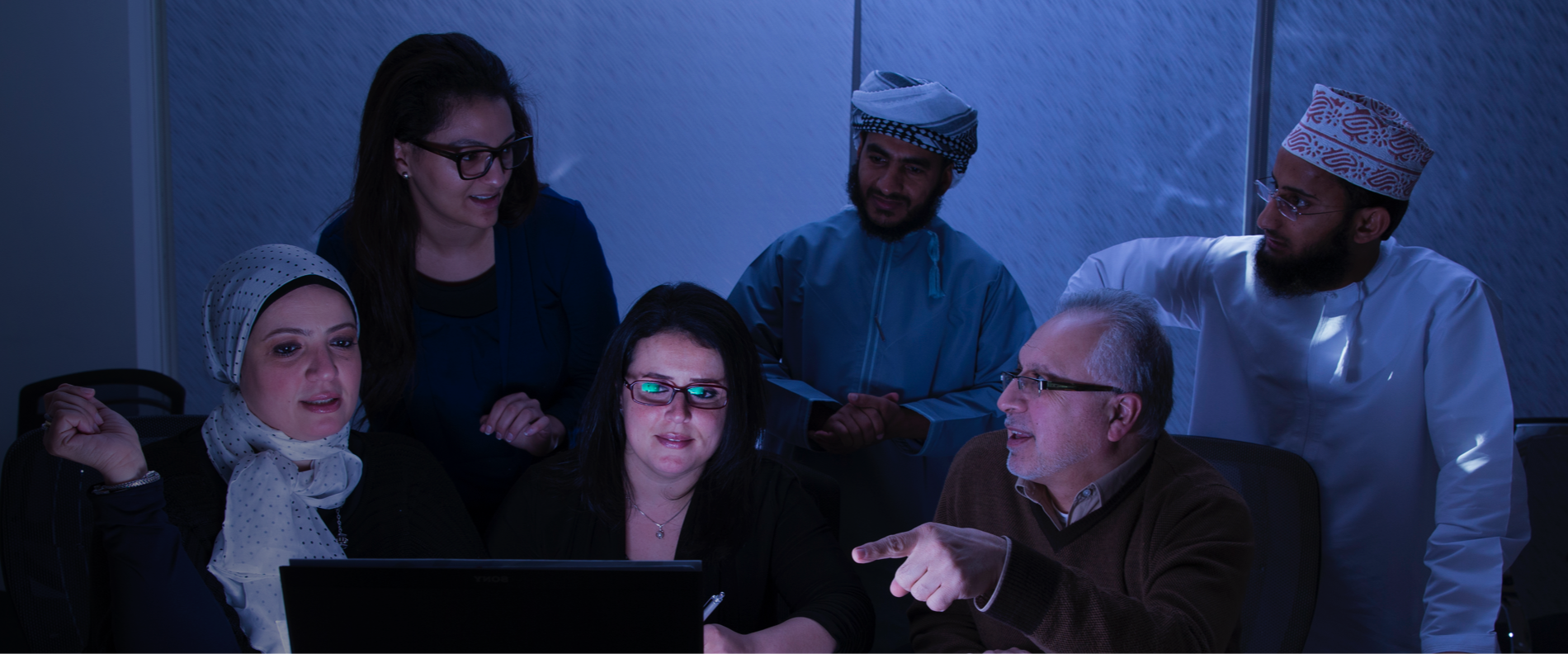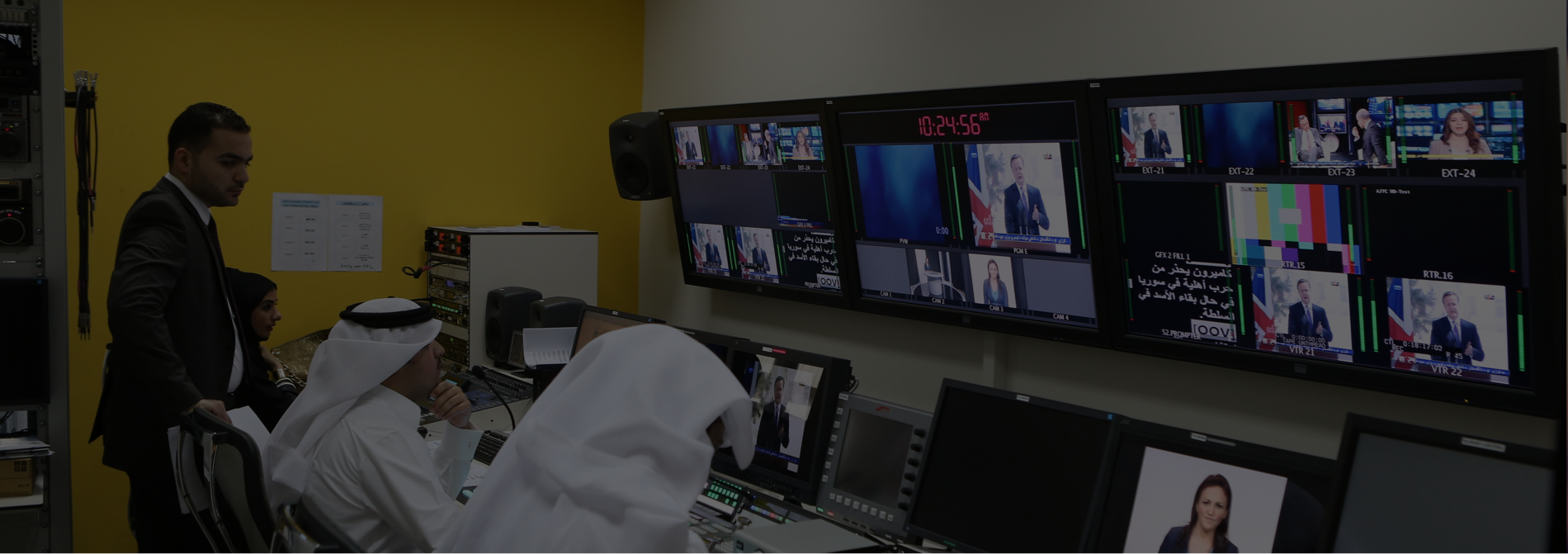Fellowship Programmes
Al Jazeera Fellowship
As part of the Al Jazeera Fellowship, journalists and scholars will have the opportunity to write a 7,000-word research paper on selected fields of journalism. Successful applicants to the programme will:
- Join a team within AJMN and experience the working environment first-hand.
- Meet with editors, journalists and other staff, relevant to their research proposal.
Programme suitable for
Full-time journalists and researchers with a background in media or social sciences.
Duration
The programme will take 3 months to complete, divided into two main phases:
Phase 1 (To be completed remotely): The researcher will work on and submit a research plan and an introduction to his or her research paper before proceeding to phase 2.
Phase 2 (To be completed at Al Jazeera Media Network Headquarters): The researcher will continue the research until final submission of the paper.
How to join the Al Jazeera Fellowship Program?
Applicants must meet the following prerequisites:
Eligibility criteria
- Bachelor’s degree.
- Full-time journalist or researcher (freelancer or employed).
- At least four years of professional experience in journalism or research, relevant to journalistic and/or media fields.
- Strong research and writing skills.
- Fluent in English (speaking and writing).
- In order to apply for the Fellowship, applicants must have a proper grasp of English academic writing.
- The Al Jazeera Fellowship in English is only open to those from non-Arab countries. Those from Arab countries may apply to our Arabic Fellowship Programme.
Requirements
In addition to completing the online application form, applicants are required to submit the following documents in PDF format, with the exception of video, images or other graphic materials provided as work samples. Please note that if any of the following is missing, the application will not be considered.
- Curriculum vitae.
- Fellowship proposal (must include title, field of interest, objectives, methodology, abstract).
- Three samples of the applicant’s work in English.
- Two letters of recommendation.
Fellow commitments
If you are selected to take part in the Fellowship Programme, you will commit to the following:
- Develop and submit a research paper of up to 7,000 words, as per the AJMI guidelines (these will be provided to successful applicants).
- Fellow must be accountable at all times. Monthly reports on work status/progress and completion must be submitted.
- Be an active and engaged member of the Al Jazeera community.
Research proposal requirements
The proposal should be between 1000 to 1500 words, demonstrating how and why your research is relevant to your field. Your proposal should demonstrate that the work is necessary to fill a gap in the existing body of research on your subject, underlining existing research on your subject, and adding new depths to the understanding of your subject. The proposal must contain the following:
- An introduction to your topic, stating your proposal and the questions your research aims to answer.
- The reason your subject is of particular importance.
- A summary of the research methodology and the theories/approaches that the researcher will use.
- The tools and procedures you will use to collect, analyse and interpret the data you collect.
- The main challenges that you expect to face during the research.
- An explanation of how journalists could benefit from your final research.
- An explanation of how your placement at Al Jazeera headquarters will benefit your research project.
The following points should be taken into consideration
- The research proposal should be authentic and original.
- The research proposal should be written specifically for the Al Jazeera Fellowship Programme.
- There will be no tolerance of any kind of plagiarism.
The applicant should provide a research proposal on one of the following topics:
(Topics provided within each area are only illustrative and not exhaustive)
-
Journalism and the Global South
- Redefining journalistic practices in the Global South: Challenges of traditional Western-centered approaches and the development of new frameworks rooted in local contexts.
- Colonialism and globalization in media and journalism: The impact of colonial history and globalization on journalistic practices in the Global South.
- Data flows and narrative challenges: The effects of unidirectional data flow on narratives in the Global South, and the role of Southern narratives in shaping global discourse (e.g., media coverage of the war on Gaza).
- The impact of Western funding programs on media in the Global South: The role of Western-funded media programs in influencing journalistic practices.
-
Digital Journalism
- How has storytelling evolved from traditional to digital journalism? Have media outlets focused more on technological innovation and visual appeal at the expense of content quality and storytelling?
- Fact-checking and news verification in journalism.
- The intersection of journalism and modern technologies in smart newsrooms, mobile journalism, data journalism, and investigative journalism.
- AI integration in newsrooms.
-
New Schools in Journalism
- Emerging trends in journalism.
- Photo-documentary journalism.
- Anthropological journalism.
- Slow journalism.
- Intersections between journalism and the humanities and social sciences.
- Journalistic storytelling techniques.
-
Journalism Ethics
- New ethical challenges in digital journalism.
- Hate speech in media and social networks.
-
Media Institutions and Challenges
- Challenges facing independent media platforms.
- Business model development in media institutions.
- Building digital transformation strategies within media institutions.
- Integration of traditional media with digital platforms.
- Challenges faced by journalism schools in the Global South.
Visiting Journalist Fellowship
NOTE: The Visiting Journalist Fellowship Program will be opened at later date.
NOTE: The Visiting Journalist Fellowship Program will be opened at later date.
Selection Process
 Al Jazeera Fellowship
Al Jazeera Fellowship
A committee will review applications and select the most competent candidates, based on the fulfilment of eligibility criteria and the relevance of the applicant's research proposal to AJMN and journalism in general.
 Visiting Journalist Fellowship
Visiting Journalist Fellowship
A committee from the AJMI will review applications and select the most competent candidates, based on fulfilment of eligibility criteria and background.
Application Timeline
The application process for English speaking applicants to the Al Jazeera Fellowship Programme starts on the 4th of November, until the 10th of December 2025
Application Form
If you are interested in either of our fellowship programmes, please apply by filling out the required information.
Al Jazeera Fellowship Visiting Journalist Fellowship
NOTE: The Visiting Journalist Fellowship Program will be opened at later date.
FAQ
Frequently Asked Questions
Please read these FAQs before contacting us with a query. We receive a lot of emails, and while we try our best to answer quickly, it may take us some time to get back to you. Thank you for understanding.
Can freelance journalist apply ?
Yes, freelance journalists can apply to both of our fellowship programs as long as they are working journalists, fulfil the eligibility criteria and requirements, and plan to keep working as journalists.
Do I have to be fluent in both Arabic and English to be considered ?
Both fellowship programmes offer positions for Arabic native speakers and non-Arabic speakers. For Arabic native speakers, having a working knowledge of English will be considered as an advantage. Non-Arabic speakers must be fluent in English.
If I meet all but one eligibility criteria, can I still be considered ?
No, candidates must fulfil all eligibility criteria. Incomplete or late applications will not be considered at all. Unfortunately, no exceptions can be made in this regard.
Can I apply all year long ?
No, applications open once a year for both fellowships, in the autumn-winter periods. Please visit the website and follow us on social media for date announcements.
If I miss the deadline, can my application still be considered ?
No, unfortunately we can’t consider late applications, regardless of the reason.
Can I work while on the fellowship program ?
Yes, but the researchers must devote sufficient time to complete the research in a way that adheres to the standards and deadlines for each research stage.
How long does the fellowship program last ?
The Al Jazeera fellowship is a 3 months programme.
What research topics are supported by the Al Jazeera fellowship ?
Priority will be given to projects focusing on digital journalism in the Arab world, in the following categories:
1) Journalism and the Global South
2) Digital Journalism.
3) New Schools in Journalism.
4) Journalistic ethics.
5) Media Institutions and Challenges.


 Al Jazeera Fellowship
Al Jazeera Fellowship Visiting Journalist Fellowship
Visiting Journalist Fellowship